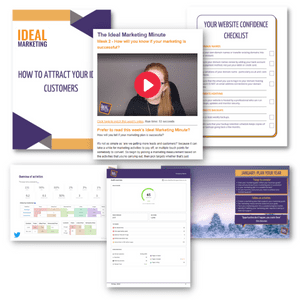Writing PR articles for the media is a great way get your company, product or service noticed. Editorial is very effective for both B2B and B2C marketing and can be a more powerful persuader than advertising as editorial features are often seen as having more legitimacy.
Getting published in newspapers, magazines, online or in the trade press can help to: 
- Position you as an expert in your industry
- Establish credibility
- Raise your profile
- Provide useful material for other marketing purposes such as newsletter or social media
How to get an article published
But what is the best way to go about it? Most editors and journalists will receive dozens, if not hundreds of article pitches every day. So, it’s important to make yours stand out. Like all areas of PR, having a defined strategy for pitching to print and online publications will improve the chances of success.
10 tips for pitching an editorial article
1. Who is your target audience?
Who do you want to communicate with and who will be interested in what you want to write about? Which publications do they read? Which websites do they rate? Knowing your audience will enable you to pitch to the right publications and ensure that you have something relevant to tell them.
2. What do you want to write about?
It sounds obvious, but this needs to be guided by what your target audience are interested in finding out about. This may not always be the same as the subjects that you want to write about. For example, if you are an estate agent, you might want to tell them about a fantastic new development of flats for young professionals that your company is marketing. However, your target audience might be more interested in learning about initiatives within the property market designed to support first-time buyers. So, identity what your target audience might want to know.
3. Do your homework
Research and identify the sort of publications that are likely to be interested in the topic that you are planning to write about. A magazine aimed at the social housing sector is unlikely be interested in an article about the link between property and inheritance tax. You can use media databases or identify key journalists from online research who are likely to be interested in what you have to say. Some publications also have contributor guidelines or media packs on their websites which can be useful. For example, Wired and New Scientist both have useful submission guides.
4. Go for quality
Ultimately whether you get published on a well-respected website or in a high-profile publication depends on the quality of your story. Avoid trying to sell products and services. Your content needs to be thought-provoking or informative or even provocative. It needs to have value for the reader. This is an opportunity to provide high quality content that will help position you as a market leader in your sector.
5. Think of an angle
Ideally, your article will propose covering new ground, offering a different perspective or offering new information. If your article can be linked to something topical happening in the news, so much the better. For example, at the time of writing this blog, one of the hot topics in the housing market was the fall in London property prices and the shortfall in new builds but later in the year, the focus may well change so keep up with what is happening in your industry.
6. Writing a clear pitch
This will probably be your first point of contact with the journalist. Most prefer email, but they do receive many, many pitches so yours needs to be concise and to the point. Put yourself in the shoes of the person reading your pitch. What is the key information that they want to know? You should summarise the main idea of your article, possibly expanding on the content in bullet points.
7. Position yourself as an expert
It’s useful to include a brief author bio of the author explaining why you/they are qualified to write about the subject. You might also want to include hyperlinks to previously published articles. However, the overall idea is keep the article pitch short and to the point. Editors don’t have time to read more than a couple of short paragraphs so craft those paragraphs carefully and choose your words wisely.
8. Offering exclusives
If you have certain key publications that you want to be featured in, offering an exclusive can be a convincing factor. However, if you agree to an exclusive, make sure that you don’t offer it to anyone else and renege on the deal.
9. Get your contacts right
Make sure that you address your pitch to the right person. If you are writing about the rental market and the magazine or newspaper has a property correspondent, it’s fairly obvious who you should pitch to. Some publications may just have an editor or deputy editor, in which case it’s probably advisable to opt for the deputy editor. Larger publications may have features editors or commissioning editors – in this case, they would be the right person to contact. It’s a matter of looking at the roles of the editorial staff and deciding which person you think is the most relevant contact.
10. Subject line
What’s the first (and possibly only) sentence that the journalist will read? It’s the subject line of your article pitch. If it piques their interest, your email stands a good chance of being opened. If it lacks punch or seems irrelevant, there’s a good chance that your email will never be opened. So, it’s worth taking your time to craft a great subject line. This isn’t as easy as it may sound. It needs to encapsulate what the pitch is about in an interesting way. Experiment with different subject lines and see which style gets the best response.
At The Ideal Marketing Company, we have helped clients from a range of sectors place articles in the media including property, legal, recruitment, hospitality and business press. Editorial is a powerful marketing tool that can help you communicate with prospects, drive traffic to your website and convert leads into sales.
Speak to a PR specialist today
If you would like help writing an article pitch or creating an effective PR strategy, contact Ideal’s Head of PR Helen Campbell on 01858 374 170 or email helen@idealmarketingcompany.com. Your initial consultation is completely free with no obligation.

Helen is co-founder of The Ideal Marketing Company. She has worked at the company since 2004, having graduated to marketing following a career in educational management in London. As co-founder of the company, Helen believes it is crucial to put the client’s needs first and to deliver a bespoke marketing solution for each organisation. Helen’s great love is copywriting. Her work with clients involves generating great ideas for PR including writing features, press releases and article pitches to build and enhance a client’s reputation in the local, trade and national media.







